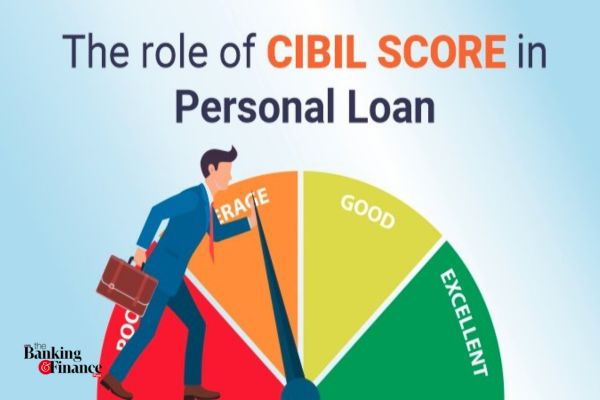|
DEMYSTIFYING MYTHS ABOUT THE CIBIL SCORE FOR A PERSONAL LOAN
In today’s digital age, applying for a personal loan online has never been more straightforward. Yet, there’s an underlying factor that can either smooth or complicate this process – your CIBIL score. As crucial as it is, many myths surround the relationship between good CIBIL scores and personal loans. This article aims to bring the truth of these myths up front, offering clarity to potential borrowers.
The Myths and Truths Surrounding CIBIL Scores
1. Higher Income Compensates for Low CIBIL Score:
 While a healthy income reflects well on your repayment capability, it doesn’t nullify a poor CIBIL score. Lenders, when assessing a personal loan online application, focus on both income and credit history. A significant income might offer some comfort, but a poor credit history showcases past financial irresponsibility, which lenders do not overlook. While a healthy income reflects well on your repayment capability, it doesn’t nullify a poor CIBIL score. Lenders, when assessing a personal loan online application, focus on both income and credit history. A significant income might offer some comfort, but a poor credit history showcases past financial irresponsibility, which lenders do not overlook.
2. A Zero Debt Situation Guarantees a High Score:
It’s a misconception that if you’ve never borrowed, you automatically have a good CIBIL score. Credit scores are essentially a measure of how well you manage credit. Without a credit history, there’s no data to evaluate, making it challenging for lenders to check your creditworthiness.
3. Checking Your Own CIBIL Score Reduces It:
Many shy away from checking their CIBIL score, fearing it will drop. However, when you check your score, it’s a ‘soft inquiry’, which doesn’t affect the score. Only hard inquiries by lenders, when you apply for credit, can potentially impact your score.
4. Settling Credit Card Debt Is Equivalent to Repayment:
Partially clearing your debt, or settling, is not seen in the same light as full repayment. While it may seem like a quick solution, it indicates potential financial stress and impacts future loan considerations.
5. A Single Default Won’t Impact Much:
Every financial misstep counts. A single default can significantly reduce your CIBIL score. Lenders view defaults as red flags, reflecting an applicant’s inability to manage their credit commitments.
6. More Credit Cards Equate a Lower CIBIL Score:
The number of credit cards you own doesn’t directly harm your score. What counts is how you handle them. Timely repayments across multiple cards can even enhance your credit profile.
7. CIBIL Score Only Considers Recent Activities:
Your CIBIL score is a comprehensive record. While recent financial behaviours are crucial, past actions spanning years also play an important role. It’s a cumulative assessment, not just a snapshot.
8. Loans Are Detrimental for CIBIL Score:
A well-managed loan can be a boon for your CIBIL score. Regular repayments showcase financial discipline, potentially leading to an uplift in your score over time.
9. All Loans Impact CIBIL Score Similarly:
Different loans carry different weights. A consistently repaid home loan can positively affect your CIBIL score, whereas defaults on a personal loan might pull it down more significantly.
10. A Good CIBIL Score Ensures Loan Approval:
A commendable score is undoubtedly a significant asset. However, lenders consider other aspects, too, such as current financial health and existing liabilities. A complete evaluation determines loan approvals, not just the CIBIL score.
Understanding these nuances can significantly enhance your prospects when you consider applying for a personal loan online. It’s always beneficial to stay informed and ensure that myths don’t guide your financial decisions.
Why It’s Essential to Maintain a Good CIBIL Score
A good CIBIL score acts as your financial passport, opening doors to numerous opportunities and favourable terms. Not just a mere number; it’s a reflection of your creditworthiness and a showcase of your financial discipline. Beyond the immediate benefits it offers in the lending aspect, a good CIBIL score has broader implications for your financial well-being.
· Favourable Interest Rates:
A stellar CIBIL score often translates to more attractive interest rates. Lenders view individuals with high scores as low-risk borrowers and, in return for their demonstrated financial responsibility, offer loans at reduced rates. This can lead to significant savings over the lifespan of a loan.
· Higher Loan Approval Chances:
The lending market is competitive, and financial institutions are increasingly discerning about whom they lend to. A good CIBIL score sets you in a good light, increasing the likelihood of your loan application being greenlit. It serves as an assurance to lenders about your credit reliability.
· Streamlined Application Processes:
Time is of the essence in our fast-paced world. When applying for a personal loan online, having a commendable CIBIL score can make the process easier. Instead of getting pulled down in lengthy checks, a good CIBIL score can lead to quicker verifications and faster approvals.
· Access to Greater Loan Amounts:
A high CIBIL score isn’t just about approval – it can also impact the loan amount you’re eligible for. Lenders, confident in your ability to repay, may be more willing to sanction larger amounts, providing you with the financial flexibility to fulfil bigger dreams or tackle larger projects.
· Broader Financial Opportunities:
Beyond loans, a good CIBIL score can prove advantageous in other financial avenues. Be it negotiating for higher credit card limits or securing premium financial products, a commendable score offers leverage in discussions with financial institutions.
In today’s digital-first financial mindset, obtaining a personal loan online is within everyone’s grasp. However, ensuring you have a good CIBIL score remains vital. By debunking these myths, we hope to empower you to make informed decisions and successfully navigate the loan application process.
- bfsi
|